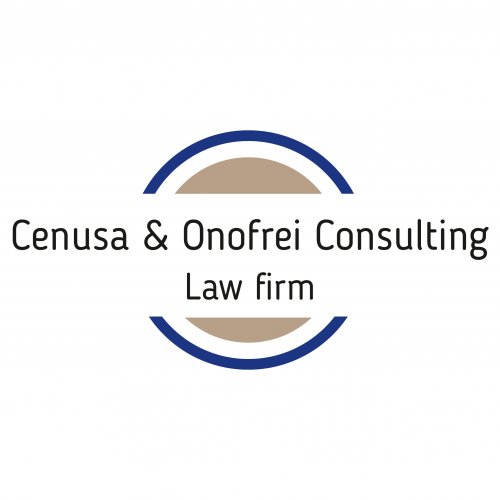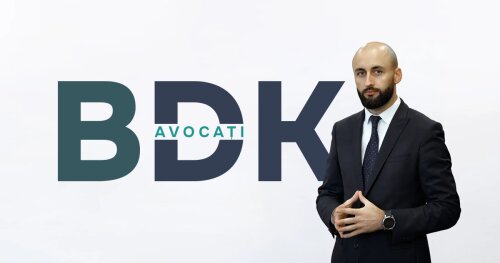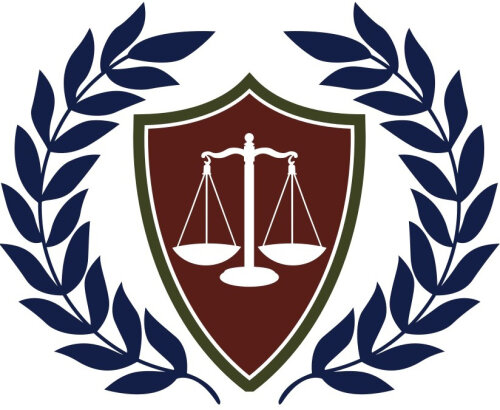Best Restructuring & Insolvency Lawyers in Republic of Moldova
Share your needs with us, get contacted by law firms.
Free. Takes 2 min.
Or refine your search by selecting a city:
List of the best lawyers in Republic of Moldova
About Restructuring & Insolvency Law in Republic of Moldova
Restructuring and insolvency law in the Republic of Moldova sets out the legal framework for managing financially distressed businesses and individuals. It is designed to provide orderly processes for addressing unpaid debts, either by reorganizing the finances of the debtor or by liquidating assets to pay creditors. This ensures fairness among creditors and offers opportunities for businesses to recover where possible while also providing mechanisms for an honest exit for those unable to continue operations. The law is intended both to balance the rights of debtors and creditors and to maintain economic stability within the country.
Why You May Need a Lawyer
Navigating restructuring or insolvency situations can be highly complex, with strict procedures and legal requirements. People or companies may require legal help in cases such as:
- Facing significant demands from creditors or threats of asset seizure
- Being unable to pay debts as they fall due
- Seeking to restructure finances or operations to avoid insolvency
- Deciding to initiate insolvency proceedings voluntarily
- Enforcing or defending creditor claims in ongoing insolvency cases
- Challenging acts performed prior to insolvency, such as suspect transactions
- Dealing with cross-border insolvency matters
A lawyer with experience in Moldovan restructuring and insolvency law can help protect your rights and guide you through the procedural steps, negotiations, and court involvement that these processes often require.
Local Laws Overview
Restructuring and insolvency in Moldova are mainly governed by the Law on Insolvency No. 149 of 2012 and related secondary legislation. Some key aspects include:
- Insolvency Proceedings: These may be initiated by either the debtor or the creditors if the debtor cannot meet its financial obligations. The process involves the court appointing an administrator and ensuring equality among creditors.
- Restructuring or Rehabilitation: Moldovan law allows for restructuring procedures prior to declaring insolvency, where debtors and creditors can agree on a restructuring plan to revive the business and settle debts over time.
- Liquidation: If restructuring is not possible, liquidation proceedings result in the sale of the debtor’s assets and distribution of proceeds to creditors according to priority rules.
- Creditor Claims: Creditors must file their claims within set deadlines to participate in distributions and influence proceedings.
- Voidable Transactions: The law provides mechanisms to reverse certain transactions entered into prior to insolvency if they are deemed prejudicial to creditors’ interests.
- Cross-Border Aspects: Moldovan law recognizes certain international insolvency rules and may cooperate with foreign courts and administrators.
- Role of the Court: Local courts have a central role in supervising and approving key decisions during insolvency proceedings.
Staying informed about these aspects and procedural steps is crucial for anyone involved in or affected by insolvency and restructuring in Moldova.
Frequently Asked Questions
What is insolvency under Moldovan law?
Insolvency is the legal state where an individual or a company is unable to pay its debts as they become due. It can apply to both natural and legal persons.
Who can initiate insolvency proceedings?
Both the debtor and creditors may file a request to the court to open insolvency proceedings if certain requirements are met.
What happens to the business during insolvency?
Generally, an insolvency administrator is appointed by the court to manage the business or to liquidate its assets, depending on the type of proceedings and the chances of recovery.
Is restructuring an option before liquidation?
Yes, Moldovan law allows for restructuring procedures aimed at restoring the financial health of the debtor and enabling the settlement of debts while continuing operations, provided a plan is approved by creditors and the court.
How are creditors paid in insolvency?
Creditors are paid according to a strict order of priority set by law, with certain claims (such as secured debts and employees’ wages) paid ahead of others.
Can previous transactions be challenged?
Yes, the insolvency administrator or creditors can challenge and request the court to void certain transactions concluded before insolvency if they are deemed to have favored some creditors over others or were intended to defraud creditors.
What are my rights as a creditor in an insolvency procedure?
Creditors have the right to submit claims, participate in creditor meetings, challenge decisions, and receive distributions from the debtor’s assets according to legal priority.
Do insolvency proceedings affect employees?
Yes, employment contracts may be terminated or altered, but employees have special protections and are given priority for unpaid salaries and related claims.
How long do restructuring or insolvency proceedings take?
The duration varies depending on the complexity of the case, the existence of assets, the willingness of creditors to cooperate, and court workload. Proceedings can take from several months to several years.
Can a foreign creditor participate in insolvency proceedings in Moldova?
Yes, foreign creditors enjoy the same rights as local creditors and can participate in the proceedings by filing their claims and attending creditors’ meetings.
Additional Resources
Those seeking further information or support may find the following resources helpful:
- Ministry of Justice of the Republic of Moldova - Provides access to legislative acts and general guidelines
- The National Association of Insolvency Administrators - Offers information on licensed practitioners
- Local courts - Serve as the main authority for insolvency procedures
- Chamber of Commerce and Industry - May provide business guidance and alternative dispute resolution options
- Financial and legal consulting firms - Available for those seeking professional representation or advice
Next Steps
If you find yourself facing financial difficulties, dealing with creditor claims, or considering initiating restructuring or insolvency processes in the Republic of Moldova, it is important to act quickly:
- Collect all relevant documents relating to debts, assets, contracts, and communication with creditors
- Assess your immediate financial situation and list all outstanding obligations
- Consult with a qualified lawyer who specializes in restructuring and insolvency. They can help you understand your options and guide you through the legal requirements
- Follow your lawyer’s advice regarding negotiations with creditors or any court procedures to ensure your rights are fully protected
- Stay proactive and communicate openly with both creditors and your legal team to find the best possible solution
Professional legal guidance can make a significant difference in the outcome of restructuring and insolvency matters, providing clarity and support during what is often a stressful period.
Lawzana helps you find the best lawyers and law firms in Republic of Moldova through a curated and pre-screened list of qualified legal professionals. Our platform offers rankings and detailed profiles of attorneys and law firms, allowing you to compare based on practice areas, including Restructuring & Insolvency, experience, and client feedback.
Each profile includes a description of the firm's areas of practice, client reviews, team members and partners, year of establishment, spoken languages, office locations, contact information, social media presence, and any published articles or resources. Most firms on our platform speak English and are experienced in both local and international legal matters.
Get a quote from top-rated law firms in Republic of Moldova — quickly, securely, and without unnecessary hassle.
Disclaimer:
The information provided on this page is for general informational purposes only and does not constitute legal advice. While we strive to ensure the accuracy and relevance of the content, legal information may change over time, and interpretations of the law can vary. You should always consult with a qualified legal professional for advice specific to your situation.
We disclaim all liability for actions taken or not taken based on the content of this page. If you believe any information is incorrect or outdated, please contact us, and we will review and update it where appropriate.
Browse restructuring & insolvency law firms by city in Republic of Moldova
Refine your search by selecting a city.

















